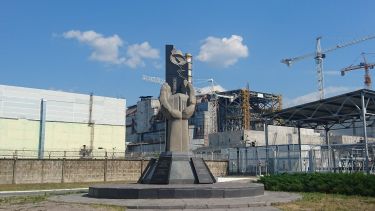In 1993, following 1986 Chernobyl disaster, the G7 launched an initiative on the prevention of further nuclear accidents within Russian built plants and agreed that the EBRD (European Bank for Reconstruction and Development) establish a fund aimed at the closure and decommissioning of some Russian built nuclear power plants of the RBMK and VVER 440-230 type.
The initiative initially included the plants of Ignalina units 1 and 2 in Lithuania, Kozloduy units 1, 2, 3 and 4 in Bulgaria, and Saint Petersburg units 1, 2, 3, and 4 in the Russian Federation. In 1996, three remaining Chernobyl units in Ukraine were added to the scope.
The fund contributors included the G7 countries, the EU, Belgium, Denmark, Finland, the Netherlands, Norway, Sweden and Switzerland. Initial contributions were in excess of ⎠285 million. As of today, 22 countries and the European Community are still contributing with grants for safety upgrades and the decommissioning of the above nuclear power plants.
This one hour seminar, led by Dr Maltini, focussed on the Intermediate Spent Fuel Storage (ISF-2) project as part of the wider G7 initiative for the closure and decommissioning of these nuclear power plants, as well as the requirement for further Research & Development to inform the safe development of new generation nuclear power plants in the region.
Biography
Dr Maltini is a graduate in Electrical Engineering, holds a Doctorate in Electronic Engineering from the University of Rome, Italy and several European and US management diplomas.
He actively advises Governments, the International Telecommunications Union, the UN Industrial Development Organization, the European Investment Bank, the European Commission and other international institutions as well as the industry on sustainable development, environmental sciences, conventional, renewable energy technologies, bio fuels, energy efficiency and energy legislations.
Dr Maltini has been responsible for the decommissioning programme of the Chernobyl nuclear power plant units in Ukraine and the Ignalina units in Lithuania. Both programmes, initiated in 1996, are still ongoing, and are expected to run for a further ten years.

